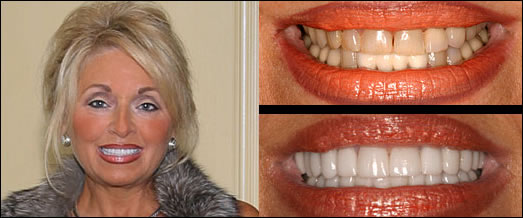If you have a loved one with Alzheimer’s disease, oral hygiene may be at the bottom of your list of concerns. However, it should not be overlooked because it’s an important part of keeping Alzheimer’s patients healthy and comfortable. Many older people tend to have dental issues as they age, but those problems increase when the person forgets how to brush their teeth or clean their dentures. Because it is a progressive disease, you should get advice from your dentist so that you can better assist the patient when the time comes.
Stages
An Alzheimer’s patient is usually able to perform their own dental hygiene as usual in the early stages of the disease. As it progresses, they may need reminders or supervision. Eventually, they can lose the ability or the interest in caring for their teeth. Your dentist can provide guidance about how to help in cleaning another person’s teeth.
Signs of pain
Watch for signs that the patient is unable to tell you they are experiencing pain. Some indications that an Alzheimer’s patient has dental problems include refusing to eat, pulling at their mouth, not wearing their dentures, increased restlessness or moaning, and aggressive behavior. If you see any of these signs, arrange for the patient visit their dentist.
Regular dental visits
Since they aren’t always able to recognize or express issues, it is important for Alzheimer’s patients to have regular dental visits. Dentists usually recommend checkups at least twice a year, so they can look for any problems that need treatment. As a loved one or caregiver, you may need to sit with the patient to ease the stress of the visit and comfort them during procedures. In some cases, you’ll need to participate in treatment decisions or give informed consent for treatment
 Patient Forms
Patient Forms Email
Email Get Directions
Get Directions
 View Gallery
View Gallery 
